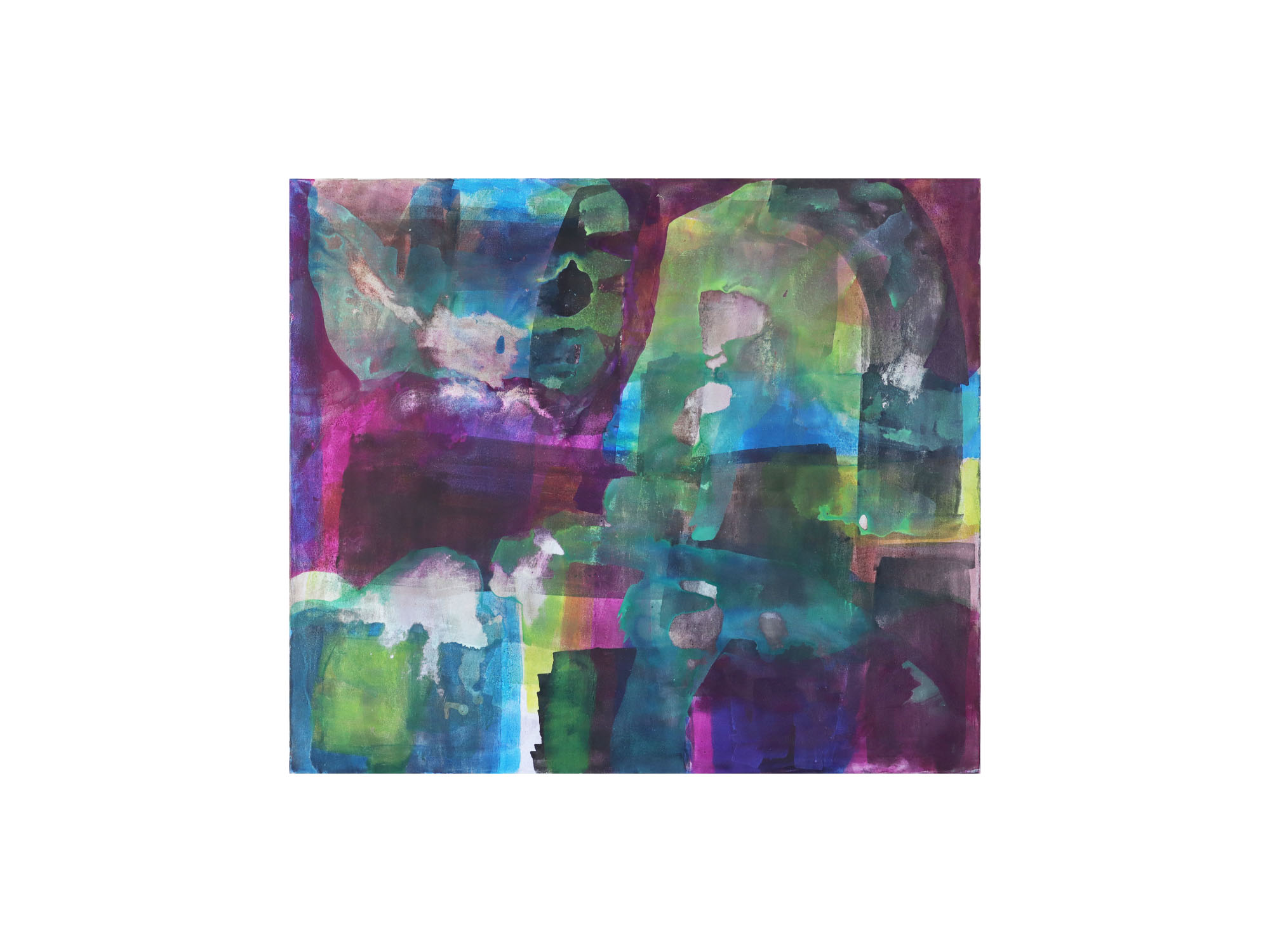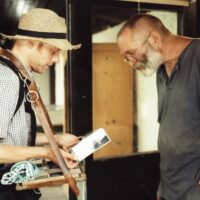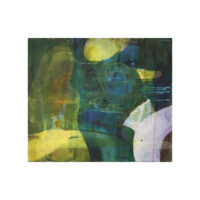The spirit is an event. Through the spirit, the I takes hold of itself.
‘Spirit’ is such a big word that it all too easily remains rather abstract: spiritual world, world spirit, the spirit in all things, the spirit of the times—all this denotes something that is not properly tangible for us. We have a notion but no concrete conception of it. It becomes most concrete when there is talk of certain ‘spiritual beings’ that ‘populate’ the spiritual world or inspire and guide the affairs of the sensory world ‘from above.’ But are such beings not once again thought of too much in analogy to the physical world to give a concept of the spiritual? When we speak of the being of Anthroposophia, or, perhaps, of ‘the law’ in the sense of an acting entity, it is easy to imagine a human-like individual with head, torso and limbs—in the former case female, in the latter it could also be male—who acts and exerts influence. But is it spiritually appropriate to form such images? Do things work in the spiritual world in the same way as in the physical world? What indeed is the relationship between the spiritual and the physical?
Experience of the Spirit Lies on the Threshold
Spirit reveals itself in the physical, not as a rationally and intentionally acting subject, but beyond subject and object relationships, always somehow unavailable, but not arbitrary either. It can, nevertheless, appear as if a natural being is acting in full consciousness and with purpose. It has been observed in recent times that plants seem to behave in an intentional and communicative way, such as when they use scents to warn each other of predators. For example, Brussels sprouts that butterflies have laid their eggs upon attract ichneumon wasps with special scents ‘so that’ the wasps eat the eggs and save the Brussels sprouts from perishing. Here, something spiritual is revealed in nature, precisely because the sprout has no consciousness of what it is doing. It doesn’t actually act, after all, but it looks as if it does.
Intentionality here belongs to the realm of as-if, because plants do not act by volition like we humans do, but something meaningful happens—there is spirit in it. We admire this ability of plants precisely because they are not really actors. If a person takes measures to protect themselves from an enemy, this is a consciously rational action that serves the purpose of self-preservation. Nothing spiritual is revealed in it but something purposeful, such as reason can accomplish. Such reasoning is technical but not spiritual.
What fascinates us about revelations of the spirit is their meaningfulness, like we can experience in nature. In fact, the spirit needs nature to come to appearance. The purely spiritual remains an abstraction in the here and now. We have an existential experience of spirit at the threshold between the world of the senses and that of the spirit, and this is virtually guaranteed for every human life. But—and this is where the unconscious comes in which also makes the Brussels sprouts fend off the larvae eating them—this boundary is crossed unknowingly, unintentionally.
This becomes clear in every human life, because the physical body of the human being, through the I, becomes the organ for opening up to the spiritual, and this happens without the I consciously bringing about such a revelation of the spirit. Indeed, in a certain sense, it is not even here yet, but it is something that is intended for the human being if they develop the three specific abilities that distinguish them as spiritual beings in the earthly realm: uprightness, language, and thinking. These are given to them and at the same time they must seize them. With them, the I appears on the scene—the spiritual in the human being that can only find itself through the physical body. It is reflected in the body and comes to consciousness.
The Spirit Happens Beyond Utility
With consciousness, however, an ambivalence enters into life: with it, the human being becomes fully capable of thinking, but this thinking also kills. It has a degenerative effect on the physical body. It asks for reasons. It rationalizes the world and makes a person skeptical. Just as a sleepwalker who awakens to consciousness can no longer put one foot in front of the other on the ridge of the roof and is in danger of falling off, so the human being who becomes conscious loses that security, which is characteristic of plants or animals. With consciousness, humans enter the sphere of the instrumental and technical. They explore the world in terms of causes and apply certain means to certain ends.
All this is practical and beneficial for life and has its absolute justification, but pragmatism is by its very nature not spiritual. The spiritual requires a consciousness other than the pragmatic or utilitarian consciousness, a consciousness that lies beyond our will, beyond end-means relationships. Such a one eludes us time and again; yet we know it well. It shows itself in the highest circumstances that characterize everything human, such as love, trust, or forgiveness.
Love is an archetype for transcending all grammatical and premeditated relations. It cannot be forced. And when it is here, you can do nothing and yet everything about it. Love is being moved and moving in one, and it is precisely in this ambivalence that it belongs to a higher consciousness that is entirely spiritual. This consciousness distinguishes humans from plants and animals, where the spiritual lies solely in the unconscious.
The same applies to trust which, as an archetypal trust, we only have unconsciously. But as soon as consciousness enters, we ask for assurance and lose trust. With consciousness, we can make free choices in the realm of the pragmatic, but we do not have the freedom to fully trust. We can seek to open ourselves to it, but we will not be guaranteed to attain it. But where we do attain it, we stand outside any calculating relationship with the world: it does not have to pay off.
Here we enter the sphere of the spirit, out of which we are promised a relationship with the world with which we can take on the venture of life. Experiencing security in defenselessness is an event in the spirit with which we cross the threshold to a higher consciousness. It may possibly be true in this respect that the relationship between center and periphery is reversed, as when we enter life after death: we have an experience in which we experience a new, daunting feeling of security and being safe, no matter what happens. This trust, which we can only provide if it is also given to us, is an experience of the spirit.
The act of forgiveness is also an essential act at the threshold. This can be seen in wanting to forgive but not being able to. Success requires our own effort and the grace of being enabled to do so. At this point, we cross the threshold to the spiritual, or vice versa: the spirit of forgiveness crosses over to us. The spirit is the spark that ignites our higher consciousness. This does not happen unconditionally and it is not easy to do. Here, the mystery principle of the circle prevails in the longing for empowerment, for somehow we must have already forgiven in order to be able to forgive.
Translation Christian von Arnim
Art Cornelia Friedrich, ‹Räume›, 120 cm × 110 cm, ink and acrylic on canvas, 2021.





